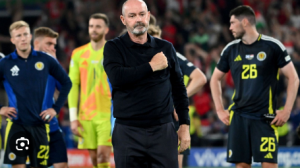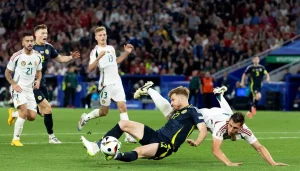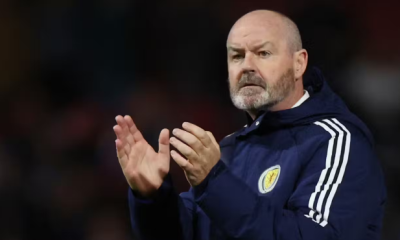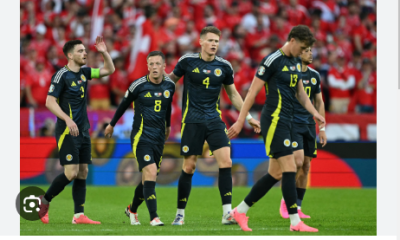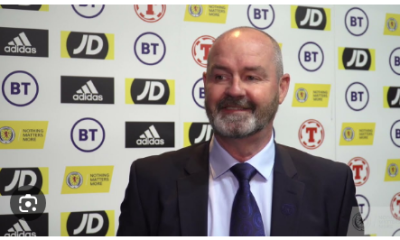Scotland National
Scotland boss gives update reason for teams success
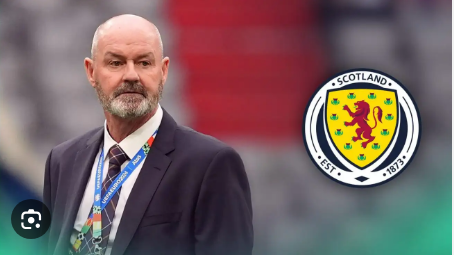
Scotland
Fans send shocking messages to Tartan Army
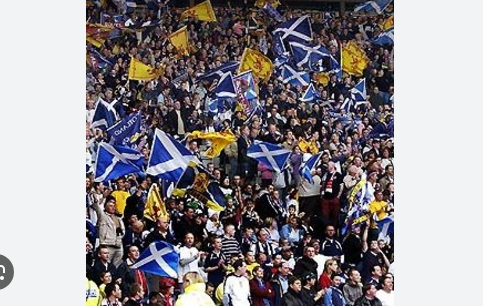
In anticipation of Scotland’s run in Euro 2024, a tourism director has referred to the Tartan Army as “fantastic ambassadors for Scotland” and expressed optimism that more tourists from host country Germany will travel to Scotland.
During Scotland’s participation in the tournament, over 200,000 Scottish supporters came to Germany to support their national side. VisitScotland, the nation’s tourism organisation, reported an 83% increase in website views from German users during this period.
14,925 German users were active on visitscotland.com between June 13 and June 23, up from 8,147 during the same period the previous year.
Pics of people wearing tartan Scotland fans cheering on their team in its first international competition since 1998 garnered international notice and were named the greatest supporters at this year’s tournament in a recent survey conducted by German media source RTL.
Malcolm Roughead, chief executive of VisitScotland, stated: “We firmly believe that the Tartan Army has served as outstanding representatives for Scotland and a tremendous source of support for our national side.
“Watching the scenes of Scotland supporters giving that iconic Scottish greeting and seeing such appreciation from the German supporters has been amazing.
We’ve seen a spike in German visitors to our website since the beginning of Euro 24, with visits nearly doubling over this time last year.
One of our most important international markets is Germany, where we spent £247 million and had 343,000 visits last year. According to our research, German tourists are drawn to Scotland because of its people, history, and landscapes—with Scotland supporters serving as a prime illustration of this.
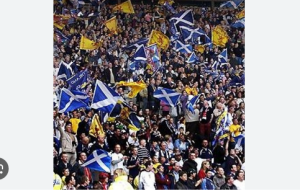
“We’ll keep fostering this interest through our marketing initiatives, such as our most recent campaign, which focuses on important west German cities with high visitor demand and good access to Scotland.”
Over the course of the tournament, up to two million people are anticipated to view the mobile digital advertising campaign, which attempts to market Scotland as the ideal retreat for those looking to replace the football drama with breathtaking landscape.
Scotland National
Scotland confirm Euro 2024 talks
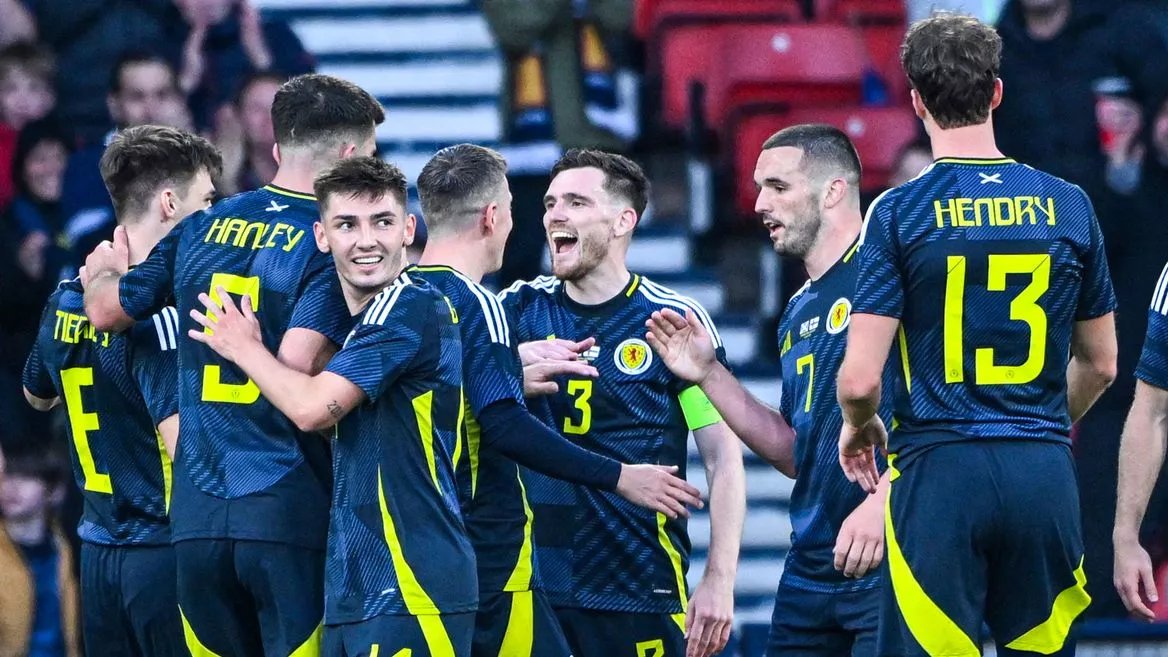
While some countries will be aware of the necessary outcome to rank among the top four third-place teams, others will not
Scotland and Hungary are tying late in the Stuttgart match on Sunday night. Scotland would place third in their group as a result of the outcome. Would that, however, imply that Scotland go on to the European Championship’s second round? Scotland is in the dark.
Scotland’s hopes of making it to the second round of the European Championship were severely diminished when they were placed in Group A. When, not who, Scotland would face, was the issue.
The first group to be finished is group A. If Scotland wins or draws with Hungary on Sunday night, they would finish third in their group, but it is unknown if this will be enough to get them to the round of 16.
It captures the ridiculousness of the European Championship. It matters more than just who teams you are matched up against. What letter your organisation is also matters.
The fairness of sports depends on the principle that all teams must abide by the same rules. This is why doping, bribing opponents or referees or, indeed, breaching Financial Fair Play rules distort the entire competition.
Sporting integrity also depends upon symmetry of information – the idea that all teams must have equal knowledge about what the outcomes of results could be. Matches are played out in unison on the final day of each league season to prevent the sides that play last from having an unfair advantage.
Yet this principle does not apply to the 24 teams at the European Championship. Sixteen teams proceed to the second round – the top two in each group, and four of the six best third-placed sides, a process that sacrifices sporting integrity.
In two previous editions of the 24-team Euros, one winner owed their victory in part to being drawn in group F. In 2016, after draws with Iceland and Austria in their opening two matches, Portugal knew that another draw, against Hungary, would be enough to squeeze into the last 16 in third place. When the score was level at 3-3, Portugal could be content, guaranteed that such a score would send them through; Hungary, who were on course to win the group in the event of a draw, had no need to press for a goal either.
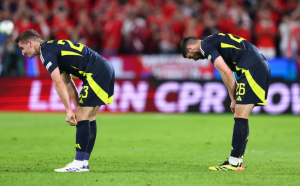
Had Portugal’s game been in group A, their calculation would have been very different. A draw would have left Portugal on three points – at risk of four other third-placed teams finishing on more points, thereby eliminating them. Perhaps Portugal would have accepted their fate being in the hands of others. But perhaps this fear would have Portugal to attack recklessly in the last throes of the game, risking conceding another goal and tumbling out of the competition.
Portugal was spared these unpleasant options because they were in group F. They were in group F again at Euro 2020, drawing their final group match to secure a third-place qualification. Portugal finds themselves, as if by destiny, back in group F for Euro 2024.
History demonstrates how a team’s chances of qualifying are increased when they are in the final group to play their matches. In addition to two European Championships, the 16-out-of-24 qualification methodology was applied to three World Cups (1986–1994). A third-placed team from the last group to play has advanced in each of the five of these tournaments.
The structure makes it more likely for teams to collude, even covertly. According to Alex Krumer, a professor of sports economics at Molde University College, “both teams might benefit from a draw if the final group stage game is between the teams that have one win and one loss in the first two rounds.”
As third-place teams advance, there’s a chance something like the Disgrace of Gijón in 1982 may happen. In the last group match, West Germany and Austria knew that if West Germany won 1-0, Algeria would be eliminated and they would both advance. After West Germany took the lead early on, neither team really bothered to try to score again. The outcome was as expected.
The oddity of third-placed teams qualifying will continue to shape the Euros even after the knockout phases kick off. Two of the six group winners must play the runners-up, but the other four get the benefit of playing the third-place teams, who are probably inferior. Krumer claims that because of these “unbalanced brackets,” “the elimination stage is unfair.”
Fans are among the other victims of the labyrinth regulations. If Scotland finishes third in Group A, they will find themselves in a strange kind of sports purgatory. Scotland will be waiting on the results in other groups for the next 72 hours, neither in nor out of the competition. Supporters who are organising visits for the knockout stages are similarly left in the dark about which games they might see due to the format’s opacity. The winner of group B will play the third-placed team from either group A, D, E, or F in this year’s second round.
Scotland
Scotland boss delivers message to Tartan Army in their Euro 2024 second match

In their second Euro 2024 Group A match, the Scots face the Swiss in Cologne in a game that might decide their fate.
Steve Clarke froze in place, gazing up at Germany’s highest mountain for a brief time as he took in the scenery.
In the picture-perfect ski resort of Garmisch-Partenkirchen, Mount Zugspitze stands over Scotland’s training base. On a clear day like today, which there haven’t been many of these past few days, it is breathtakingly beautiful.
“This place is truly lovely, isn’t it?” remarked Scotland’s manager as the two of us took a quick stroll from the media centre to our separate hotels. There was just no way not to agree. Clarke said, winking and just barely grinning, “Well, let’s stay for a wee while longer then, eh?”
And as the realisation dawned, the national team manager may never have been more focused or assured than he is at this moment, ahead of a game that may perhaps define his entire career in the position.
Even if the crushing defeat they inflicted on Germany on the first night should have left them for dead, Clarke and his team will still be in the running for this tournament if they defeat Switzerland or even manage a draw against them in Cologne.
However, after spending the weekend back at the squad’s Bavarian base camp, Clarke seems to have slipped into an almost zen-like frame of mind. Over the course of Saturday, he booted some assholes and put an arm around some shoulders on Sunday after that enigmatic, horrifying malfunction in Munich.
Most importantly, though, is that Clarke seems to have found his own sense of self-belief again, even though the rest of the nation is still struggling with sentiments of significant doubt.
And, heaven forbid, a few of his own players as well.
When asked if the 5-1 drubbing at the Allianz, along with a dismal run of games leading up to this summer’s finals, would have given his team an inferiority complex at the worst possible time and place, Clarke responded coolly and said, “Maybe.”
“But we don’t have much time to get that back,” he continued. He’s also not joking.
Scotland, still nursing injuries, took off for a journey into Germany’s northwest yesterday, aware that they would not be able to survive another Group A loss in as many days.
Despite this, it seems as though Clarke is privy to information that the rest of us are not.
In order to restore their confidence, he went on, “it’s all about working on the mind. After that, we have to make sure that our tactics, bodies on the pitch, and style of play are all correct. That can instill a small amount of belief in them.
Naturally, we also want to get off to a strong start in the game, as we were not the best at it the other night. These tiny things can all add up. A professional football player who knows he’s a good player quickly regains his confidence.
We’ll be alright even if he appears a little nervous at first, as long as we play the Swiss game well and take appropriate action.
Either under dire circumstances or when a catastrophe seems imminent, he makes an excellent man manager. Or he’s a brilliant bluffer. We won’t have to wait long to find out in either case.
“We are chasing the clock on this one because the games come around so quickly,” admitted Clarke. However, we are fortunate to have an extra day to prepare because we were the first to play on Friday night.
This allows us a little more time to consider and refine our previous work before being ready for the next task. Thus, that works in our favour.
Since most of us have known one other for a very long time, it doesn’t take much to recall our goals and methods. Together, we don’t have any problems. I wouldn’t be seated here and the team would be led by someone else if we couldn’t collaborate effectively.
It will be someone else’s turn sooner than Clarke expects if he makes the same mistakes he did in Munich.
For example, considering the incomprehensible fashion in which Scotland gave over all midfield to their hosts, it is hard to imagine Billy Gilmour ever being the manager’s bench again.
But is Clarke prepared to acknowledge that that particular choice was the primary cause of that heartbreaking loss?
Alright, no. Not really.
With a shake of his head, Clarke stated, “It is tough to respond,” going on to say, “Is one guy really going to make that amount of difference in a 5-1 game where we were never in the game? Perhaps we are just placing too much pressure on Billy by bringing up the subject in that particular circumstance.
“Leave him enter the following game with a clear head if he is chosen. It is challenging. You are free to express yourself, and I will state that I don’t believe it changed anything. “Yes, it did make a difference,” you may respond. But regardless of how it turns out, we will never know the truth.
In actuality, though, all we know is that Switzerland entered the match on an unexpected high after surprising everyone by defeating Hungary 3-1 on Saturday to start their European campaign.
Even though they had a difficult time reaching to these finals, they are now seasoned tournament players and are already looking forward to the knockout phases, which usually occur for them on a clockwise basis.
“I thought they were really good the other night,” Clarke remarked. They seemed fine to me when I observed them in qualifying. They fulfilled the requirements.
You forget about Switzerland for a little while. They are, however, repeat qualifiers. And very invariably in the last eight or sixteen. They’re capable of doing it. They are aware of what to do.
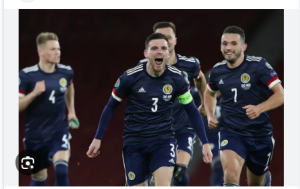
They have speed up front and a fairly solid spine running through the middle of the club. This will be a challenging game.
When it was pointed out to Clarke, rather grimly, that Switzerland nearly always makes it to the final 16, that knowing smile almost burst out again.
With a nod, he acknowledged that it was true. So let’s endeavour to emulate Switzerland more!
Does that sound like a man who is prepared to leave and return home now?
-
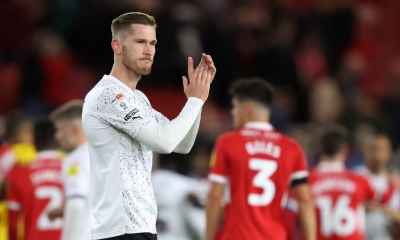
 Rotherham United2 months ago
Rotherham United2 months agoCardwell in, McCart out: The dream start to Rotherham’s summer transfer window
-

 Lincoln City6 days ago
Lincoln City6 days agoCharlton Athletic agree contract deal with Lincoln City
-

 Featherstone Rovers2 weeks ago
Featherstone Rovers2 weeks agoFeatherstone Rovers Chairman’s claim
-

 Totton7 days ago
Totton7 days agoTotton Man found dead in stolen car
-

 Kilmarnock1 month ago
Kilmarnock1 month agoPolice close down Kilmarnock road this morning
-

 Wakefield Trinity3 weeks ago
Wakefield Trinity3 weeks agoWakefield Trinity boss statement to fans after Wembley experience
-

 Totton6 days ago
Totton6 days agoPolice found dead body of missing Totton woman
-
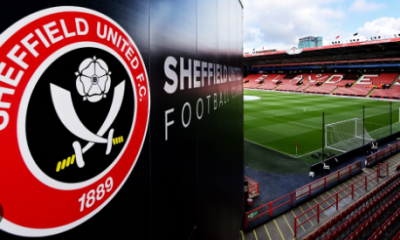
 Sheffield United1 month ago
Sheffield United1 month agoSheffield United welcome new experienced 27-year-old to the defence

